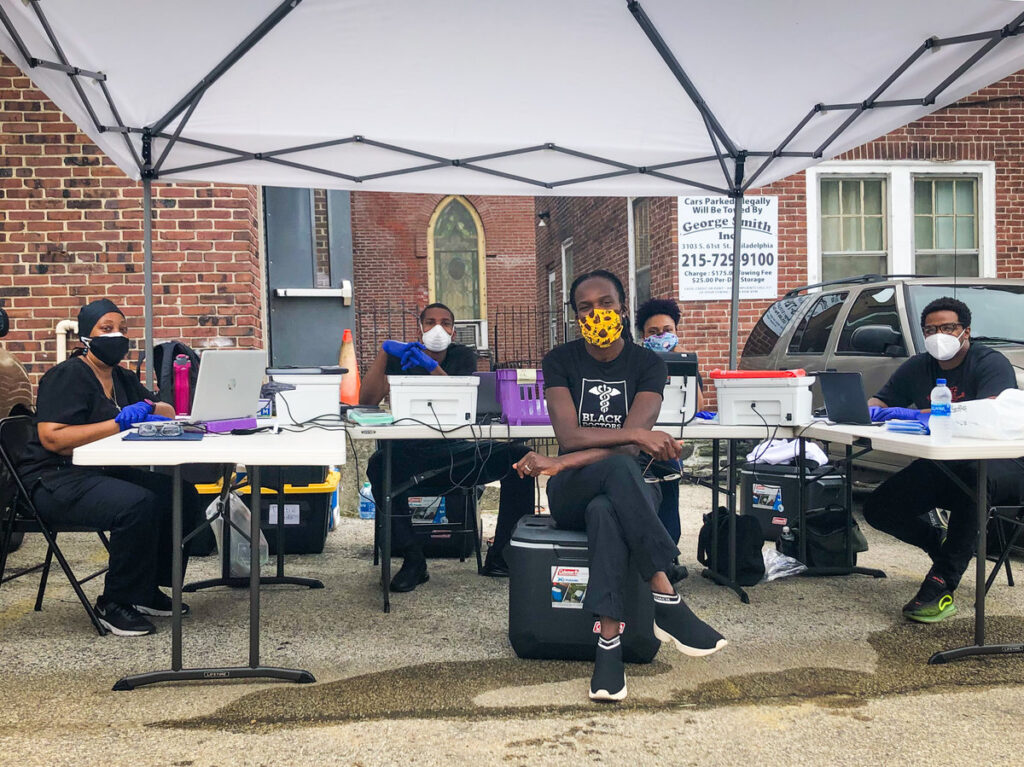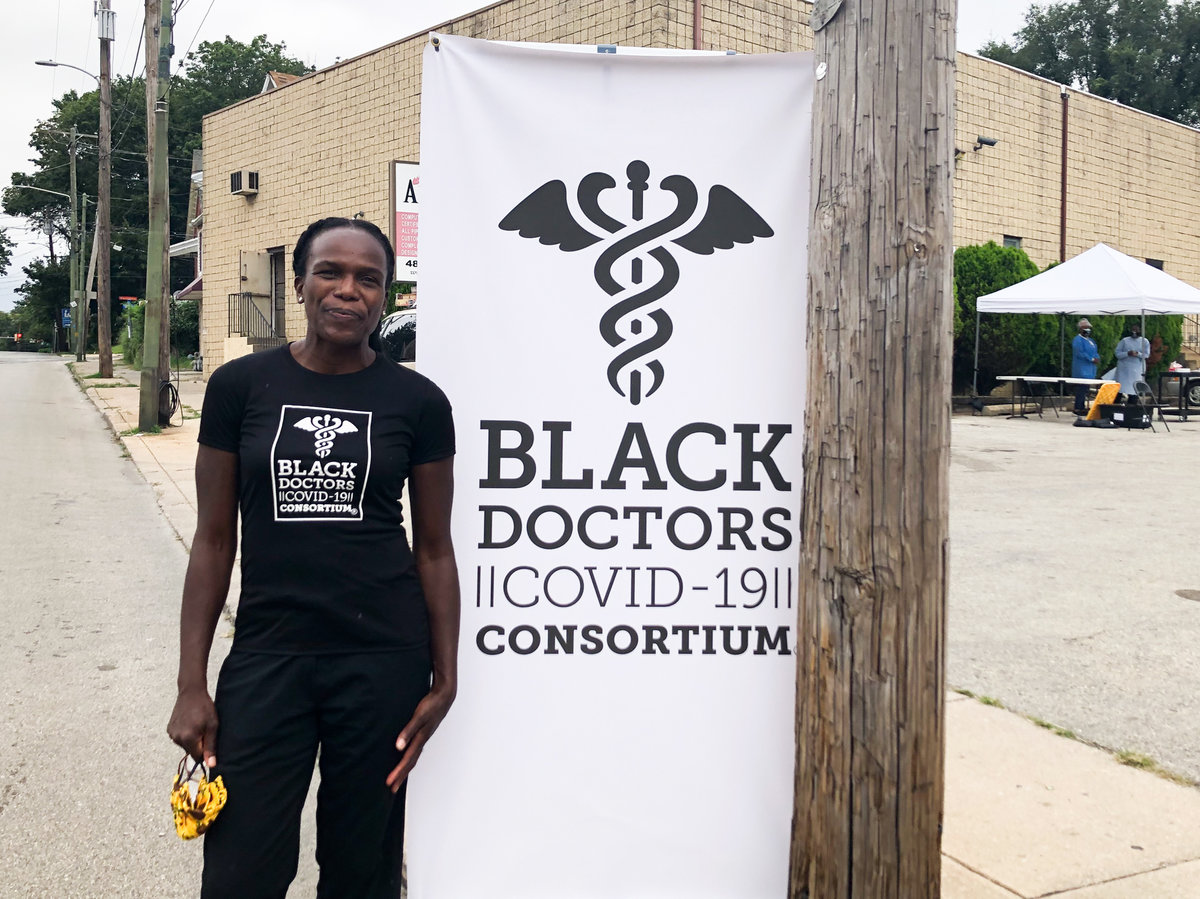When the coronavirus arrived in Philadelphia in March, Dr. Ala Stanford hunkered down at home with her husband and kids. She’s a pediatric surgeon with a private practice, and staff privileges at a few suburban Philadelphia hospitals. For weeks, most of her usual procedures and patient visits were canceled. So she found herself, like a lot of people, spending the days in her pajamas, glued to the TV.

And then, at the beginning of April, she started seeing media reports indicating that Black people were contracting the coronavirus and dying from COVID-19 at greater rates than everyone else.
“It just hit me like, what is going on?” says Stanford.
At the same time, she started hearing from Black friends who couldn’t get tested because they didn’t have a doctors’ referral, or didn’t meet the testing criteria. In April, there were shortages of coronavirus tests in numerous locations across the country, but Stanford decided to call around to the hospitals where she works to learn more about why people were being turned away.Article continues after sponsor message
One explanation she heard was that a doctor had to sign on to be the “physician of record” for anyone seeking a test. In a siloed health system, it could be complicated to sort out the logistics of who would communicate test results back to patients. And, in an effort to protect health care workers from being exposed to the virus, some test sites wouldn’t let people without cars simply walk up to the test site.
